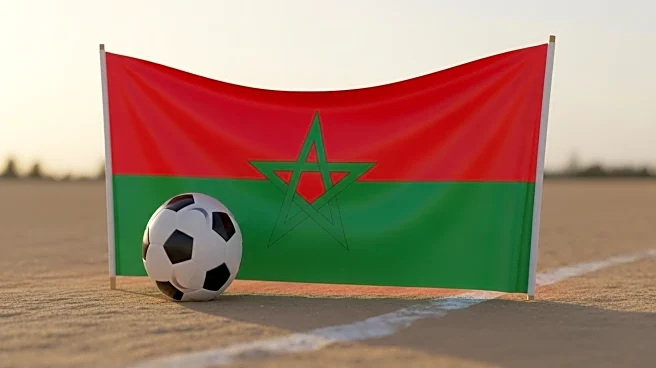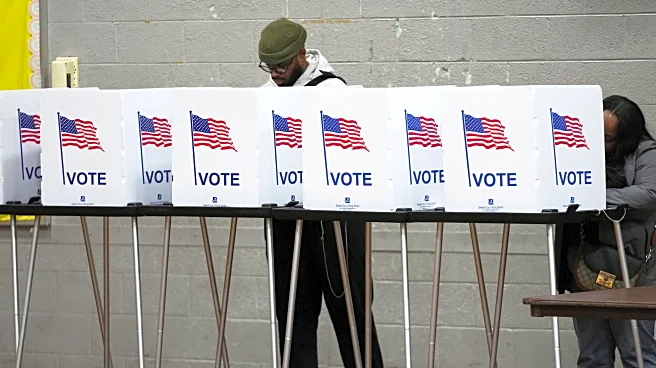What's Happening?
Moroccan youth have been protesting against the government's decision to invest heavily in football infrastructure for the 2030 World Cup, demanding instead improvements in healthcare and education. The protests, organized by the Gen Z 212 group, have spread across 10 cities, with demonstrators calling for accessible public healthcare, quality education, and better living conditions. The movement gained momentum following the deaths of eight women in a maternity ward in Agadir, highlighting deficiencies in the healthcare system. Despite Prime Minister Aziz Akhannouch's openness to dialogue, the protests have continued, with calls for concrete changes.
Why It's Important?
The protests underscore a significant generational shift in priorities, with young Moroccans demanding that the government focus on essential services rather than international prestige projects. This movement reflects broader global trends where youth are increasingly vocal about social justice and government accountability. The protests could lead to policy changes if the government responds to the demands, potentially improving healthcare and education systems. However, the government's response, including mass arrests, has drawn criticism from human rights organizations, indicating potential political instability.
What's Next?
The protests are expected to continue, with demonstrators organizing clean-up groups and calling for peaceful dialogue. The government's willingness to engage in meaningful discussions and address the demands could determine the movement's future. If the government fails to act, the protests may escalate, potentially leading to further unrest and international scrutiny. The upcoming local elections could also influence the government's approach, as public sentiment may impact electoral outcomes.
Beyond the Headlines
The protests highlight the ethical dilemma of prioritizing international events over domestic welfare. The movement's leaderless structure challenges traditional political engagement, suggesting a shift towards decentralized activism. The government's handling of the protests could affect Morocco's international image, especially as it prepares to host the World Cup. The situation also raises questions about the role of social media in mobilizing youth movements and shaping public discourse.










